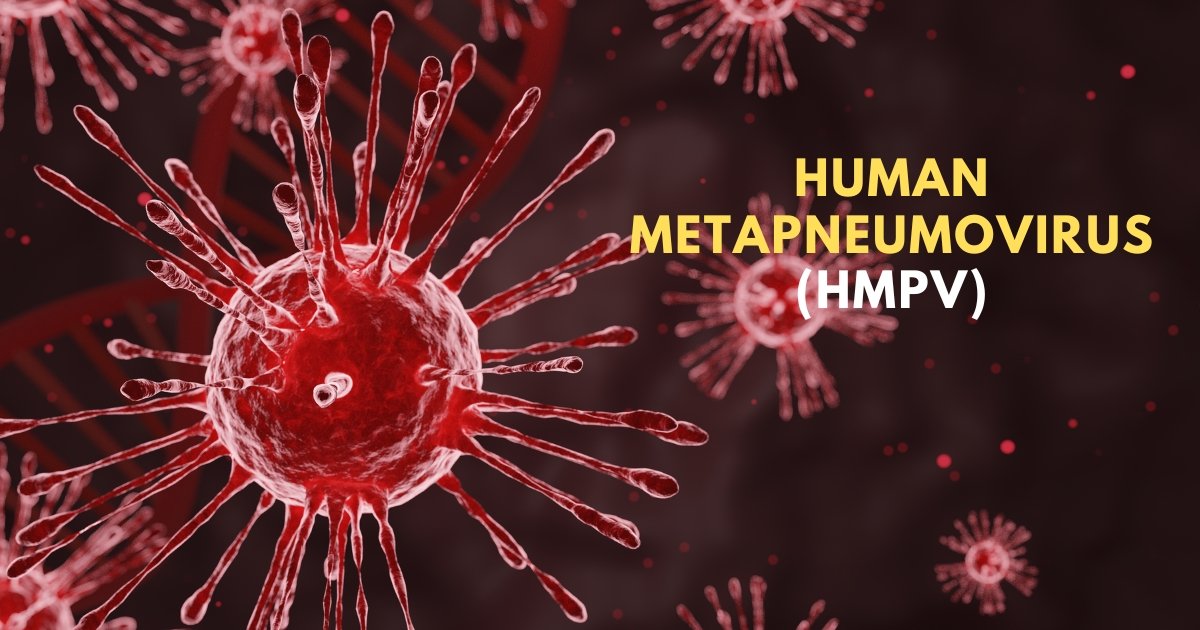
We are still recovering from the effects of Covid-19 when another virus named Human metapneumovirus barged in. The virus has already affected an 8-month-old baby in Bengaluru, India. HMPV is generally a respiratory virus that has been causing upper and lower respiratory infections.
This virus is closely related to respiratory syncytial virus (RSV). The HMPV can be mild in healthy individuals and can lead to severe illness in young children, older adults, and people with weak immune systems.
Let’s dig deeper into the actual meaning of the human metapneumovirus along with its symptoms and treatment.
What is human metapneumovirus (HMPV)?
Human metapneumovirus is a contagious respiratory virus that causes an upper respiratory infection. It is a common and seasonal disease that usually occurs in winter and early spring. However, the virus causes a wide range of respiratory illnesses, such as the common cold and even severe conditions like pneumonia and bronchiolitis. This virus is easily transmitted through respiratory droplets when an infected person sneezes, coughs, or talks. Along with this, the virus can also spread through contaminated surfaces.
Major symptoms of human metapneumovirus (HMPV)
There are diverse symptoms associated with HMPV. However, the HMPV can vary depending on the severity of the induction and the individual’s health. The symptoms are generally mild and similar to a cold, but they can also lead to serious respiratory problems.
The common symptoms are:
- Runny or stuffy nose
- Cough (dry or productive)
- Sore throat
- Fever
- Fatigue
- Headache
- Body aches
- Shortness of breath or wheezing (in more severe cases)
The severe symptoms are:
- Severe cough or wheezing
- Dehydration (especially in infants and older adults)
- Chest pain or tightness
- Cyanosis (bluish skin, lips, or nails due to lack of oxygen)
- Difficulty breathing or rapid breathing
Infants and older adults generally acquire low immunity, which leads to more serious complications such as bronchiolitis and pneumonia. The immunocompromised people are also at greater risk of developing severe disease.
Treatment for Human Metapneumovirus (HMPV)
If the effect of the virus is mild, it can be managed at home. Try to drink lots of fluids to prevent dehydration. Over-the-counter medicines can be taken, such as decongestants, pain relievers, and cough suppressants, to help prevent symptoms.
For severe cases, hospitalization is essential. This is because the virus affecting people severely will require oxygen therapy, medications to open up the airways, intravenous (IV) fluids to prevent dehydration, and mechanical ventilation.
Some Preventive Measures to Avoid HMPV
- Consider good hygiene practices by frequently washing hands and using tissue while coughing or sneezing
- Avoid close contact with infected individuals to prevent spreading virus
- Regular cleaning of commonly touched surfaces can help reduce the risk of transmission.
- In case the vaccination is provided for the virus, make sure to be vaccinated as soon as possible.
Conclusion
Human metapneumovirus (HMPV) is a respiratory virus that can be managed with some preventive points discussed above. Many individuals can easily recover with symptomatic treatment and supportive care. People who are more vulnerable, such as infants, older adults, and immunocompromised individuals, may experience serious complications. With good hygiene and avoiding contact with infected individuals, people can deal with HMPV.
